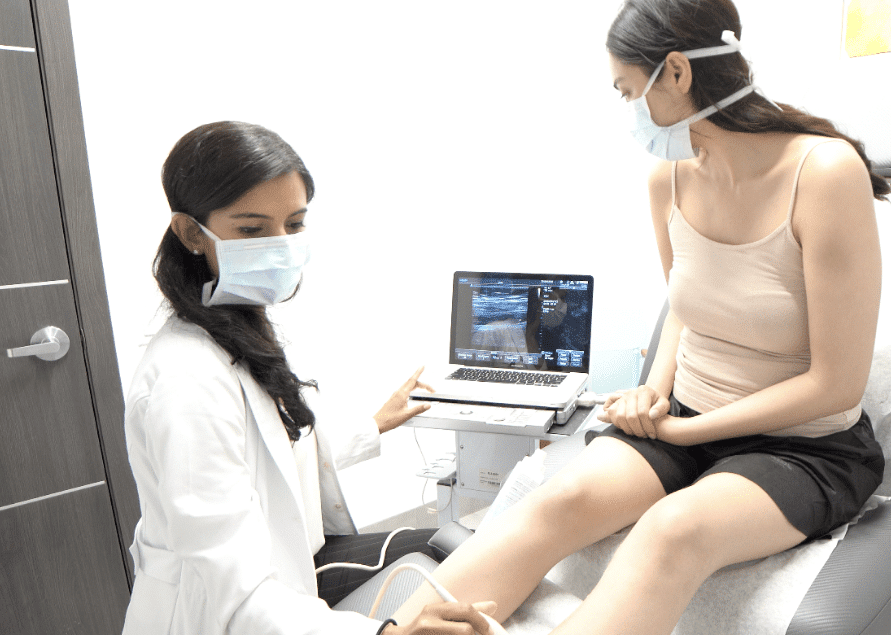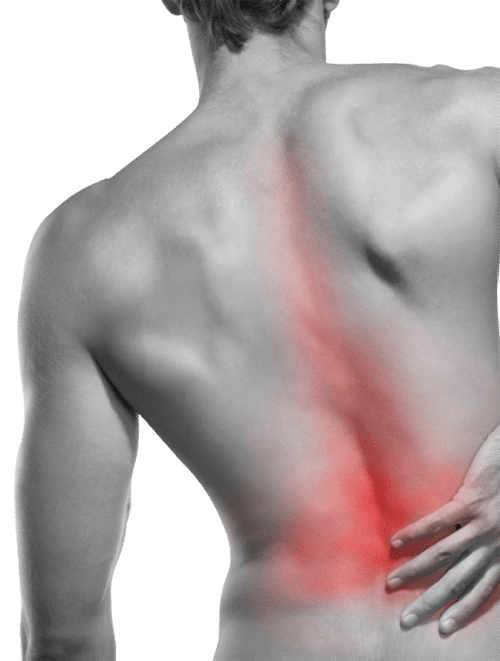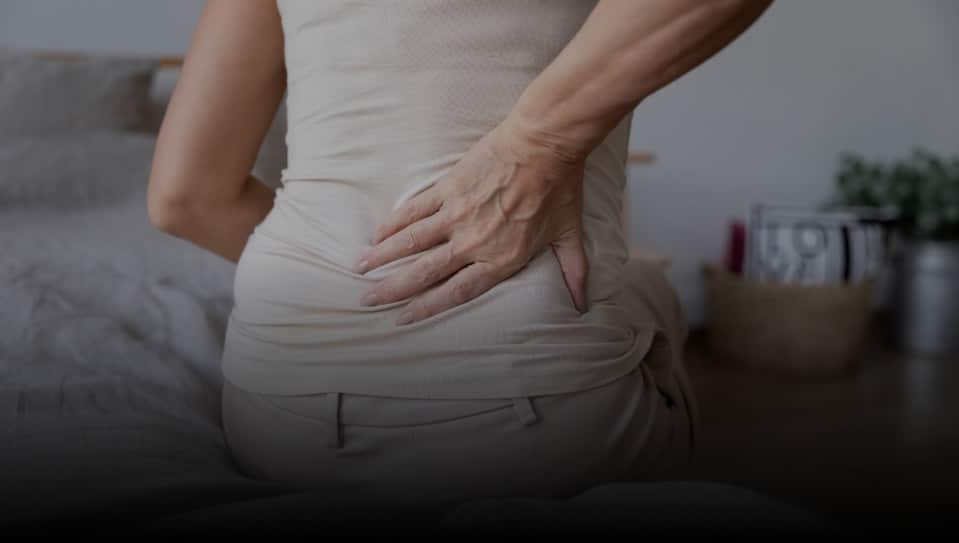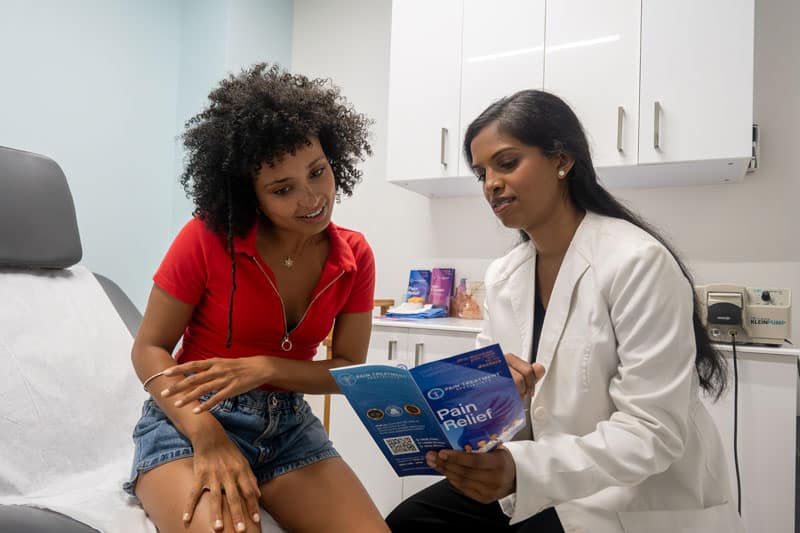When should I be worried about lower back pain?
Lower back pain can be caused by numerous factors, and in some cases, it may not be serious. However, there are certain instances when you should be concerned and seek medical attention. If your lower back pain is accompanied by any of the following symptoms, it’s best to seek medical attention right away:
- Numbness or weakness in your legs or feet
- Loss of bladder or bowel control
- A fever, or signs of an infection such as redness, warmth, or swelling in the affected area
- unexplained weight loss
- Constant and severe pain
- Pain that is not relieved by rest or over-the-counter pain medication
It’s always better to be safe than sorry, so if you’re experiencing any of these symptoms, it’s best to schedule an appointment with your back doctor to get an accurate diagnosis and treatment.
In addition to the aforementioned symptoms, there are other signs that your lower back pain may be cause for concern. For example, if you’ve recently had a fall or an accident, or if you have a history of cancer or osteoporosis, you should seek medical attention right away. These conditions could put you at a higher risk for serious injury or complications.
Additionally, if your lower back pain has been going on for an extended period of time and is not improving with rest or over-the-counter pain medication, it’s best to visit a back center in New Jersey. Chronic lower back pain can be caused by numerous underlying conditions, and early diagnosis and treatment is key to managing the pain and preventing further complications.
It’s also important to consider the context of your lower back pain. If you have a physically demanding job, or if you participate in activities that put a lot of strain on your lower back, such as lifting heavy weights or playing contact sports, you may be at a higher risk for injury. In these cases, take steps to protect your back and practice proper form and technique to avoid injury.
New Jersey Back Center is a group of state-of-the-art medical centers led by board-certified interventional pain specialists in New Jersey. Our back pain specialists carefully examine your back, discuss your symptoms, and administer cutting-edge imaging and diagnostic tests to identify the root cause of back pain and curate a personalized treatment plan, which may consist of minimally invasive procedures, such as corticosteroids and nerve blocks.
You can find our back centers in West Orange, Paramus, Clifton, and Woodland Park. Our Clifton office is located at 1117 US-46, Suite 205 Clifton, right off NJ-3 and near the garden state parkway. Please schedule an appointment at your nearest back center in New Jersey.

What is a doctor for your back called?
A doctor who specializes in the treatment of back pain is called an interventional pain specialist. These doctors are typically board-certified anesthesiologists, physiatrists, or neurologists who have completed additional training in the diagnosis and treatment of chronic pain conditions. They use a variety of techniques and procedures, such as nerve blocks, spinal injections, and minimally invasive surgery, to help manage and alleviate chronic pain.
Interventional pain specialists are experts in the use of imaging techniques such as X-rays, CT scans, and MRIs to diagnose the source of pain, and can also offer a wide range of treatments, including physical therapy, medications, and nerve blocks. They work closely with other healthcare professionals, such as physical therapists, to develop a comprehensive treatment plan that addresses the underlying cause of your pain and helps you regain your quality of life.
Can lower back pain cause your legs to hurt?
Yes, lower back pain can cause pain in your legs. This is known as radicular pain, which is caused by irritation or compression of the spinal nerves in the lower back. The pain can be felt in the legs and buttocks, and can be accompanied by other symptoms such as numbness, tingling, and weakness. Some common conditions that can cause radicular pain include a herniated disc, spinal stenosis, and degenerative disc disease. These conditions can put pressure on the nerves as they exit the spinal column and cause pain to radiate down the legs.
Please note that leg pain caused by lower back issues can be confused with other conditions, such as peripheral neuropathy, sciatica, or even deep vein thrombosis, so it’s important to see a back doctor for an accurate diagnosis. It is always advisable to seek medical attention if you experience severe or persistent lower back pain, especially if it comes along with other symptoms, such as numbness, tingling, or weakness in your legs.
Why does my left side lower back hurt?
There are many potential causes of lower back pain on one side of the body, such as a muscle strain or sprain, a herniated disc, or a pinched nerve. Other possible causes include a spinal injury, an infection or tumor, or a degenerative condition, such as osteoarthritis.
- Muscle strain or sprain can happen when you overuse or overstretch your muscles, resulting in tears or damage to the muscle fibers. This can happen from poor posture, improper lifting techniques, or repetitive motions.
- A herniated disc occurs when the soft center of a spinal disc bulges out and puts pressure on a nearby nerve. This can cause pain in the lower back as well as the leg, depending on the location of the herniation.
- Pinched nerve is the result of compression or irritation of a nerve. This can happen when the nerve is compressed or pinched by a herniated disc, bone spur or a muscle. This can cause pain, numbness, or weakness in the lower back and leg.
It’s hard to say exactly what’s causing your lower back pain without a proper diagnosis. As such, if you have any signs or symptoms of lower back pain, please visit your nearest back center in New Jersey for a thorough evaluation and treatment.





